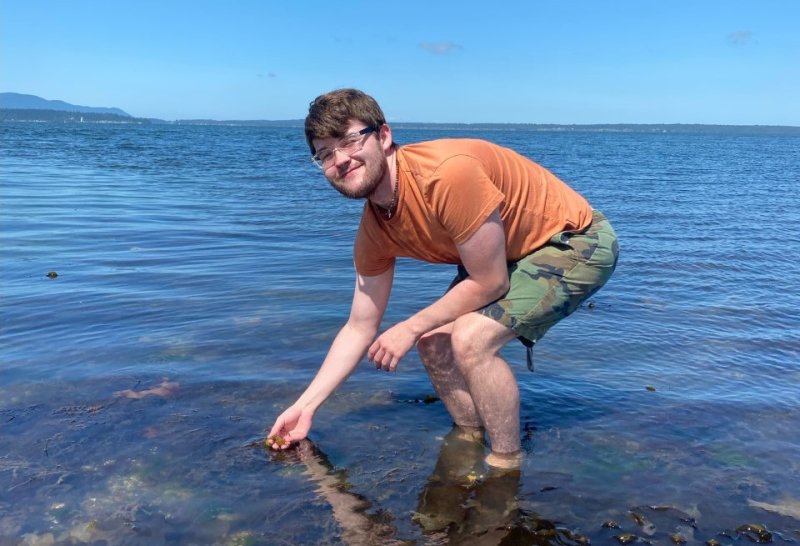Biology grad student awarded a Research and Creative Opportunities Grant from WWU
Jeremy Johnson (he/him), a second-year biology grad student, recently received a Graduate Research and Creative Opportunities Grant from WWU for his work on the chemicals produced by Salish Sea benthic diatoms.
As Johnson explains, diatoms are a class of single-celled phytoplankton. He studies live on the seafloor and notes that it’s the “slimy brown stuff you might touch at the beach.” If you peek at them under a microscope, you’ll see all kinds of dynamic structures — star patterns, ovals, chains, and more. And not only do diatoms look like beautiful little glass sculptures, they’re also ecologically important. They account for over 20 percent of the oxygen produced on the planet. In terrestrial comparison, that’s more than all rainforests combined!
As Johnson’s research has demonstrated, these diatoms produce compounds called polyunsaturated aldehydes (PUAs). In a rather sneaky way, the chemicals deter copepods from feasting on the diatoms: the PUAs concentrate in the copepods’ gonads, then in their eggs, ultimately reducing offspring survival rates. In simple terms, diatoms produce PUAs to limit future predators in their community. Crucially, PUAs and their impact on predator-prey populations may ripple through entire ecosystems since diatoms comprise the lowest level of the food chain.
Johnson loves that his research requires so much back and forth between two of his strong suits: biology and chemistry. Throughout his project, he has worked closely with advisors Brady Olson (Biology) and Karin Lemkau (Chemistry).
When Johnson’s not in his lab, he’s often teaching undergraduate biology labs. “Interacting with my students every week, understanding what they’re going through, and helping them work through it is very fulfilling,” he says.
What’s next for Johnson? Hopefully, more diatom research: He’ll graduate in the spring, then hopes to continue his work in a PhD program.
Learn more about Western’s master's program in biology at gradschool.wwu.edu/biology.
